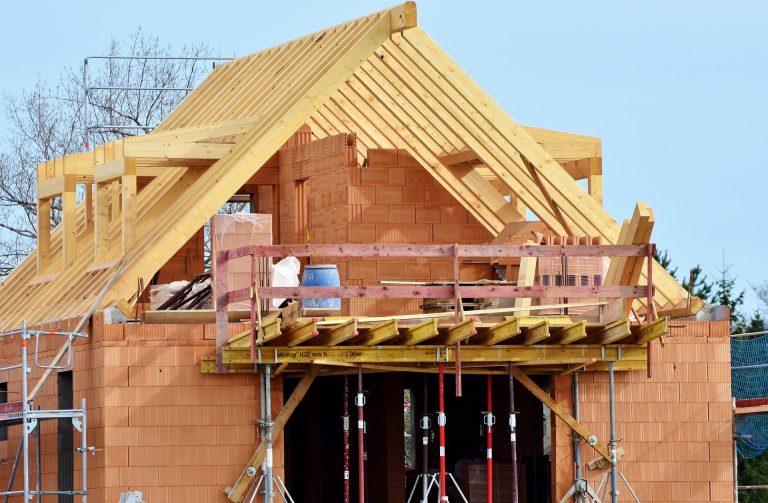How housebuilders can prepare for the First Homes scheme In February 2020, Secretary of State for Housing, Communities and Local Government, Robert Jenrick, announced the Government’s First Homes scheme. The scheme will see thousands of new houses being built across the UK, aimed to help more first-time buyers onto the property ladder. When building for first-time homeowners, housebuilders need to consider their specific needs. Here, Nick Cowley, managing director of windows and doors manufacturer Euramax, explores how housebuilders should prepare for the First Homes scheme. The First Homes scheme aims to make home ownership more attainable by providing homes at a discounted price of at least 30 per cent. In the UK, house prices can be as much as 15 times the median salary, excluding many from purchasing. By selling houses for less than the open market price, the Government hopes to help people buy homes in their local communities. Even with a discounted housing price, first-time buyers are likely to be on a tight budget and will favour ready-to-move-in homes that require minimal modification. Therefore, it is important that housebuilders construct new builds to be as practical as possible, so that first-time buyers can move in comfortably and enjoy their homes right away. Safety first Home security is a top priority for any homeowner. With around 350,000 burglaries occurring across the UK every year, a comprehensive home security system is a sensible investment. However, security measures can be a costly upgrade that first homeowners could probably do without. Housebuilders should choose windows and doors with integrated safety mechanisms that will give new homeowners peace of mind that their property is secure. Around 74 per cent of burglars in the UK enter through the front door, and housebuilders should be mindful of this when designing their new builds. Security technology is rapidly developing, and housebuilders may want to integrate SMART window and door locks into high-spec new homes. SMART locks can be combined with sensors that alert homeowners if a window or door has been left open. This can then be managed remotely via a smartphone, giving homeowners complete control of the access to their home, no matter where they are. Besides thinking about SMART technology, homeowners must build with structural security in mind. Composite doors offer the highest level of protection. They are made of sturdy structural frames and glass-reinforced plastic, which makes them ideal for protection against burglars. Taking a two-fold approach to new build security will give first-time buyers confidence in their property right from the start without the need for costly enhancements. Energy efficiency Another outgoing that first-time buyers will be keen to keep low is running costs. Although new homes are already roughly 50 per cent cheaper to run than an equivalent Victorian house, improving the energy efficiency of a new build should be prioritised by housebuilders. In a 2019 report, the Committee on Climate Change recommended that all new homes should use no more than 15 to 20 kilowatt hours of energy per square metre per year (kWh/m2/year) to keep warm. However, Government statistics suggest that the actual figure is nearer 60 kWh/m2/year. Using up to four times the amount of energy recommended comes at an extra cost to homeowners, so housebuilders should select materials and building components that contribute to lowering energy expenditures. Up to 30 per cent of a home’s heat is lost through its windows, so choosing the right window style is crucial to improving energy efficiency. Windows need to be as non-conductive as possible, to keep the cold out and the heat in. Euramax offers double-glazed PVCu windows that are rated A for energy efficiency. Both the air between the windowpanes and in the PVCu frames are good insulators of heat, which helps to improve the consistency of a home’s temperature and prevent heat loss. Selecting energy-efficient windows will not only reduce costs for new homeowners, but it will also reduce national domestic energy consumption. Domestic energy consumption accounts for around 28 per cent of the UK’s total energy use. If housebuilders ensure that new builds are as energy efficient as possible, the industry will support the UK in meeting its target of zero net greenhouse gas emissions by 2050. Modern design According to a survey conducted by Barratt Homes, only half of first-time buyers intend on staying in their first home for over a year, yet in reality, 71 per cent stay for four or more years. Housebuilders should build with this in mind, by choosing components that are designed to retain their appearance, reducing the need for frequent replacements. The average first-time buyer in the UK is 34 years old, meaning many will be hitting other life milestones at the same time as home ownership. Whether it’s marriage, children or a new pet, a first-time buyer needs a house that can adapt to suit any change in lifestyle. PVCu windows and doors are a practical option thanks to their strength and durability. However, they are often considered an unstylish solution because of the misconception that they cannot be customised. At Euramax, our products come in a range of colour options and glass designs that can be customised to suit the desired house style, be it traditional, modern or anything in between. What’s more, our windows come with a ten-year guarantee, which means new houseowners will be safe in the knowledge that their new property will be fit for purpose however their lifestyle may change. With more than four million people in the UK living in sub-standard accommodation, it’s important for the housebuilding industry to prepare for the First Homes scheme to allow them to work with the Government to reduce this number. By carefully considering the unique needs of the first-time buyer market and selecting housing components that meet them, housebuilders can be sure that new properties will serve their owners for years to come.







